MercoPress. South Atlantic News Agency
Economy
-
Friday, November 7th 2014 - 22:51 UTC
Argentina targets yet another US company on alleged tax fraud
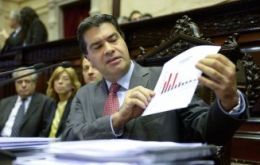
US corporation firm General Electric has “over-invoiced” imports in a financial maneuver designed to access additional dollars in the official foreign exchange market, claimed Argentine Cabinet Chief Jorge Capitanich. GE thus becomes the second large US company in less than a week to face accusations of financial trickery in order to obtain economic benefits.
-
Friday, November 7th 2014 - 22:44 UTC
Despite Rousseff, extreme poverty grows for the first time in a decade

The number of Brazilians living in extreme poverty grew for the first time in a decade, according to government figures. The Institute of Economic Research reported that the number of people in households with incomes below the poverty threshold of 30 dollars rose from 10.1 to 10.5 million people, which means a 3.7% increase.
-
Friday, November 7th 2014 - 05:11 UTC
ECB ready to give the Euro zone further economic stimulus

The president of the European Central Bank (ECB), Mario Draghi, says the bank stands ready to give the Euro zone further economic stimulus “should it become necessary”. The comments boosted shares in Europe. It also prompted a fall for the euro, with analysts increasingly braced for more dramatic stimulus measures.
-
Thursday, November 6th 2014 - 07:52 UTC
YPF manages significant increases in output and profits in the third quarter
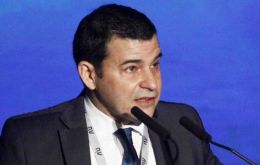
Argentina's state-controlled oil firm YPF hydrocarbons' production in the third quarter increased by 15.4% from a year earlier to 573,000 b/d of oil equivalent (boe/d). The rise in production translates into a 13.9% increase from a year earlier for the first nine months of the year to 553,000 boe/d.
-
Thursday, November 6th 2014 - 07:37 UTC
US soybean crushers claim Argentine export taxes distort the market
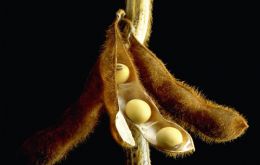
The American Soybean Association, the National Oilseed Processors Association and the North American Export Grain Association sent comments last week to the U.S. Trade Representative identifying significant barriers to U.S. exports, particularly on the trade distorting impact of Argentine Differential Export Taxes, or DETs, and the artificial advantage provided to soybean products exported from that country.
-
Thursday, November 6th 2014 - 07:22 UTC
Argentina and hedge fund NML Capital ratify their commitment to keep fighting

Argentine Central bank chief Alejandro Vanoli, said the country will be not getting down on its knees in a negotiation with 'vulture funds' (hedge funds), once the January first date comes and the controversial RUFO clause, (preventing Argentina from voluntarily offering holdout creditors better terms than those of its 2005 and 2010 restructurings), falls.
-
Wednesday, November 5th 2014 - 23:38 UTC
The best whiskey in the world is not Scottish, but Japan's Yamazaki

Japanese single malt whiskey has been named the world’s best for the first time by a prestigious guide, which also declined to place a scotch in its top ranking. The Yamazaki Single Malt Sherry Cask 2013 was described as “thick, dry, as rounded as a snooker ball” by Jim Murray’s Whisky Bible, which awarded it a record-matching 97.5 points out of 100. The latest guide was released Monday.
-
Wednesday, November 5th 2014 - 22:43 UTC
Uruguay, “a role model for the region and the world” in tobacco policies
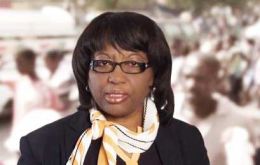
The Pan American Health Organization/World Health Organization (PAHO/WHO) is supporting the Government of Uruguay as it defends its tobacco control policies against claims brought by the Philip Morris tobacco company.
-
Wednesday, November 5th 2014 - 07:20 UTC
Cuba is asking for 8 billion dollars in investment from private corporations
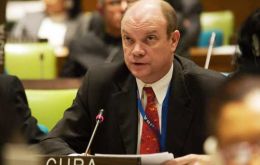
Cuba asked international companies on Monday to invest more than 8 billion dollars in the island as it attempts to kick-start a centrally planned economy starved for cash and hamstrung by inefficiency.
-
Wednesday, November 5th 2014 - 06:43 UTC
The end of an era: Is the US petrodollar under threat?
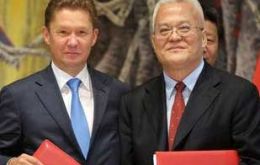
Recent trade deals and high-level cooperation between Russia and China have set off alarm bells in the West as policymakers and oil and gas executives watch the balance of power in global energy markets shift to the East.
